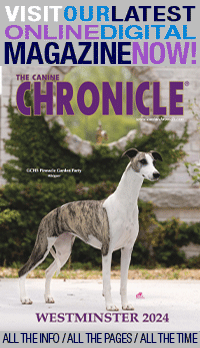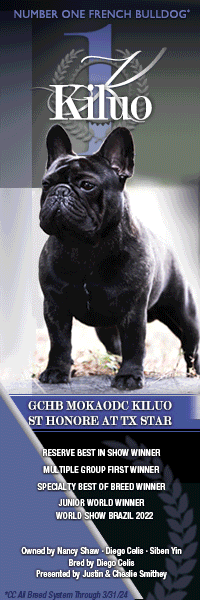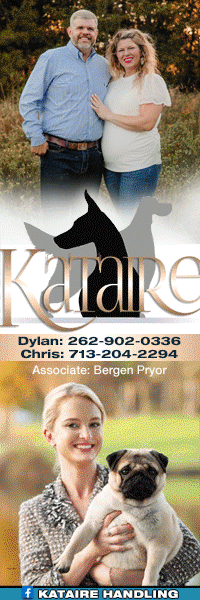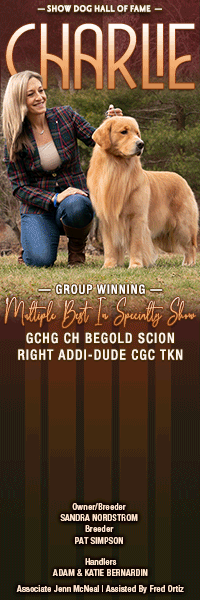From The Publisher
Click here to read the complete article
During my travels to shows recently, one topic kept coming up again during conversations with seasoned exhibitors and breeders. There is a feeling amongst many in the fancy that they cannot approach the majority of judges to discuss their decisions that day. Furthermore, they feel that honest discussions with judges about the breed standard is off limits.
The exhibitors I spoke to about this problem are not neophytes. They have been showing and breeding for decades. Every one of them is, in my opinion, an expert in one or more breeds. Most have won at the highest levels of our sport and some have shown the top winners of all time in their breed. Yet, even with those credentials, they said they have been dismissed by some judges when they approached them to discuss the judging that day, or to discuss their breed in general. They said the common retort is,?“I’ll be happy to talk about your dog, but we are not discussing the placements or other dogs in the class.”
Now I understand the reluctance to discuss placements or other dogs from the judge’s perspective. They don’t want to have a discussion turn into a heated argument or trashing of another competitor’s dog. That’s fair. However, I think each potential interaction with an exhibitor should be evaluated in the context of the moment. For instance, if a long-time, experienced judge whose basis of knowledge began with the Terrier group is approached by an exhibitor who has bred a top Sporting breed, maybe they should consider the conversation an opportunity to learn more about that breed. Even if said judge has multiple groups, it doesn’t mean he or she can’t learn more about a particular breed where their only experience with that breed might be having judged it.
Frankly, if an exhibitor who has consistently shown or bred top dogs or dozens of champions in a specific breed approached me to talk about it, I would savor that opportunity. I?think judges should also feel privileged to have a similar opportunity. Beyond that, if I was a judge and a person with great experience in a breed where I had a more limited knowledge-base approached me with concern about my placements, I would have similar concern. I would be worried that maybe I don’t know as much as I think. I would try to listen and learn and glean as much information as possible while being cautious of that person trying to influence my decision for their own benefit.
I am sure there is concern that some of these discussions would not go well.?Depending on the person, it could erupt into a heated discussion or argument. If that happens, the judge could simply stop it then and there. Other options would be to have a time and place for the discussion in the presence of a rep, ring steward or officer of the club. This would serve to keep the conversation from getting out of hand and would also provide for a witness should that happen.
There is no doubt AKC’s approval process for each breed is thorough and judges should feel like they know each breed thoroughly once they are approved. However, just like grooming, handling and breeding, you never know it all. Judges should approach each show as an opportunity to expand their knowledge of dogs and embrace interaction with other knowledgeable fanciers.
Short URL: https://caninechronicle.com/?p=101460
Comments are closed











